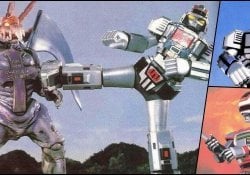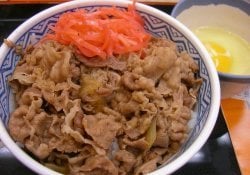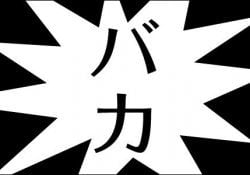Many boast about their 3 consecutive days off, but did you know that there is an entire week of holidays in Japan? We are talking about Golden Week, the famous Golden Week. Today we will see what happens during this great Japanese week and which holidays occur in it.
[ゴールデンウィーク] or golden week is the joining of four Japanese holidays in a period of 7 days, usually having combinations with weekends. Golden Week is one of the 3 biggest Japanese holidays and takes place from April 29th to May 5th.
Golden Week is a national holiday, so many workers and students take the opportunity to take a vacation and rest in relatives' homes, travel or enjoy. It is recommended to make advance reservations in hotels, because on this holiday, practically everything is crowded.
What are the holidays or dates that make up the Golden Week? Let's see below a little about each special date of Golden Week.
Índice de Conteúdo
What is Golden Week?
As already mentioned, it is the longest holiday period in Japan. Many Japanese citizens take paid time off during this holiday, and some companies are closed completely and give their employees time off.
Golden Week is the longest vacation period of the year for many Japanese workers. Only two other Japanese holidays last most of the week: the Japanese New Year in January and the Obon festival in August.
The holiday can also be called "oogatarenkyuu" [大型連休], which literally means long holiday or big holiday. In Japanese, Golden Week can also be written as "oogonshuukan" [黄金週間].
See below the holidays that make up the Golden Week:
Responsive Table: Scroll the table to the side with your finger >>
| Date | Holiday | Japanese name | celebrated |
| april 29 | Emperor's birth | Tencho Setsu [天長節] | 1927-1948 |
| april 29 | Emperor's Birthday | Tenno Tanjobi [天皇誕生日] | 1949-1988 |
| april 29 | green day | Midori no Hi [みどりの日] | 1989-2006 |
| april 29 | Showa day | Showa no Hi [昭和の日] | 2007 to today |
| May 3 | Constitution Day | Kenpō Kinenbi [憲法記念日] | 1949 to today |
| may 4th | Citizen's Vacation | Kokumin no Kyūjitsu [国民の休日] | 1988-2006 |
| may 4th | Green Day | Midori no Hi [みどりの日] | 2007 to today |
| May 5th | Children's Day | Kodomo no Hi [子供の日] | 2007 to today |
History and Origin of Golden Week
Due to the enforcement of the national holiday law in 1948, the holidays were concentrated in the period from April 29 to May 5, and this period became known as Golden Week because of the influence of the film world.
In 1951, the movie Jiyū Gakkō recorded higher ticket sales during this busy holiday week than any other time of year (including New Years and Obon). This led the managing director of Daiei Film Co., Ltd. to dub the week “Golden Week” based on Japanese radio jargon “golden time”, which indicates the period with the highest listener ratings.
At the time, April 29 was a national holiday commemorating the birth of Emperor Shōwa. After his death in 1989, the day was renamed "Green Day". In 2007, Green Day was moved to May 4, and April 29 was renamed Shōwa Day to commemorate the late Emperor.
April 29 - Start of the Golden Week
Formerly this was also the date of the Emperor's Birthday, but this National Holiday refers to the Reigning Emperor. So much so that currently this holiday occurs on February 23. Emperor Hirohito's reign is still remembered by the name Showa no Hi.
Showa no hi (昭和の日) is the name of the current holiday that celebrates the birthday of the former Emperor Showa, who died in 1989. On this day the Japanese remember the 63 years of the Showa Era and also the difficulties they had to endure during that turbulent time.
Before World War II, this holiday was also called Tenchōsetsu [天長節] which referred to the birthday of the Empress' consort. After the war, the new government renamed it to Tennō tanjōbi, in a less formal language. Between 1989 and 2006, April 29th was used to refer to as the green day.
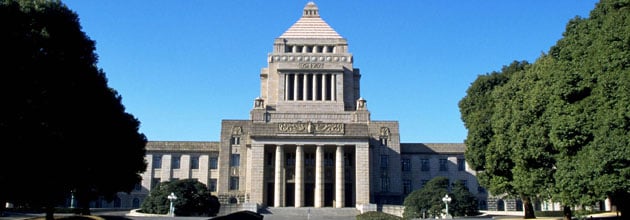
The article is still halfway through, but we recommend also reading:
May 3 - Kenpõkinenbi (Constitution Day)
Constitution Day (憲法記念日) is an important day where Japanese people reflect on the meaning of Japanese law, democracy and Japanese government. This holiday came into effect in the year 1947.
This constitution was responsible for the peace treaty signed in 1952. Japan has a peaceful policy and does not get involved in wars, only if it is in self-defense.
May 4th - Midori no hi (Greenery Day)
Until 2006, the green day (みどりの日) It used to be celebrated on the 29th of April, the date of the ex-Emperor Showa's birthday, but has been moved to the 4th to fill the gap. The day is dedicated to the environment and nature.
This day was created because the Emperor loved plants and nature. He also studied and published several works in the field of Marine Biology. This harmony with nature is strongly linked to the principles of Shintoism.

On that day, there are many activities that involve planting trees, cleaning parks, lectures on environmental issues, and bringing the Japanese closer to nature.
May 5 - Kodomo no hi (Children's Day)
"Kodomo no hi [こどもの日]" is considered Children's Day, but this date is also known as "Tango no Sekku" (Boys' Day). The Tango event takes place on the 5th day of the fifth month, but in the past, based on the Chinese calendar, the day was June 5th.
This day is to celebrate Children's Day, but it is mainly intended for boys. Girls have their own day, the Hina Matsuri which takes place on March 3rd. There is also the Children's Festival called shichigosan.
On this day carps-shaped banners called koinobori, are hung in gardens to symbolize strength and determination. Families also display samurai dolls, armors, helmets, and other samurai weapons to represent the hero Kintaro.
We recommend reading: Kodomo No Hi, 753 and Hina Matsuri - Children's Day In Japan
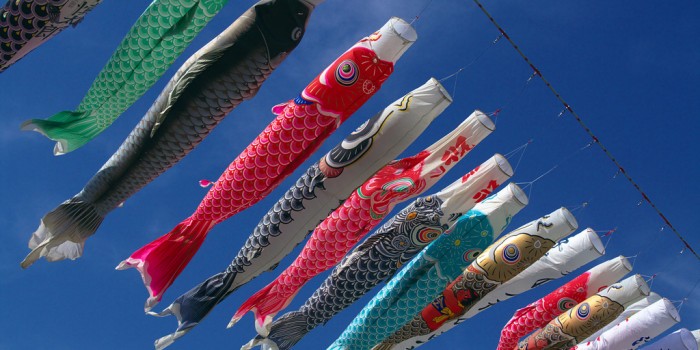
In addition, other symbols such as Shoki, Momotaro, and Shobu are used. On this day, children eat chimaki, rice cakes wrapped in bamboo leaves, and kashiwa mochi. On this day, the song of the carp called Koinobori uta is sung.
This is one of the most important weeks in Japan. For many it's holidays and enjoyment, for others it's remembering these important dates and celebrating them. It's for you? Did you like the article? Share and leave your comments below.
Silver Week - Silver Week
If there is a golden week, is there a silver week? Yes, it's called Silver Week [シルバーウィーク] and can refer to any series of holidays other than Golden Week. Generally holidays that take place in September, October and November.
In 2009 this term gained traction to refer to sequences of 3 holidays that take place in September. This advertising term was created and championed by the film industry in the 1950s to refer to a day-centered period of culture.
It can refer to the period before and after Thanksgiving Days in November. Not every year the sequence of holidays manages to adapt for a long period or take a weekend. They are usually dates such as Elderly Day, Culture Day and others.
Golden Week in China
The Chinese also copied the same holiday scheme from Japan. Golden Week [黄金周] in the People's Republic of China is the name given to a biannual 7- or 8-day national holiday, implemented in 2000.
There is more than one Golden Week in China. The first is called Chunyun which takes place around Chinese New Year in January and February. Another Golden Week could take place on October 1st if the fall festival is close to National Day.
There is also the Golden Week of Labor Day which starts on May 1st. This week was discontinued in 2007 but was reintroduced in 2019. What do you think of these holidays abroad? Could Brazil have its Golden Week? would be the Could it be Carnival?
FAQ - Questions and Answers about Golden Week
The Golden Week is a period of extended holidays in Japan. It usually takes place between the end of April and the beginning of May and includes a series of consecutive national holidays, becoming one of the most anticipated times for travel and leisure in the country.
The holidays that make up the Golden Week include: april 29 - Showa Day (Emperor Showa's birthday) / May 3 - Constitution Day may 4th - Green Day (Midori no Hi) / May 5th - Boys' Day (Kodomo no Hi), also known as Children's Day
The Golden Week, or Semana Dourada in Portuguese, usually lasts about a week, as the name itself suggests. However, the exact number of days may vary slightly depending on the calendar and how the holidays align in a given year. When these holidays fall on weekdays, and not on weekends, it is common for companies and schools to grant additional days off, resulting in a whole week of break or even more, depending on the policies of each employer or institution.
To make the most of Golden Week holiday in Japan, plan ahead by booking flights and accommodation, explore popular destinations like Tokyo and Kyoto, take part in festivals and cultural events, try local cuisine, visit historical and cultural sites such as temples and castles, enjoy nature in parks and mountains, and experience the various transportation options available in the country, always respecting local traditions and safety guidelines.
Among the holidays that make up Golden Week in Japan, Showa Day (April 29) is generally considered the most significant and important. This holiday celebrates the birthday of Emperor Showa (Hirohito), who was the emperor of Japan during a significant period of the country's history, including World War II and the subsequent reconstruction and economic development. Showa Day is a time for reflecting on Japan's history and values, and many people take advantage of Golden Week to visit historical sites, participate in cultural events, and honor the memory of the emperor.


